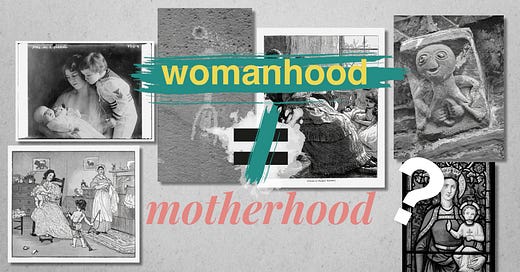Why the 'perfect mother' ideal sets us up for failure
I’ve now spoken to so many other mothers about motherhood, often in between chasing toddlers, during nappy changes or scrambling around to find a healthy snack at the bottom of an over-flowing bag. Sometimes we comment on everyday life, sometimes we dissect why parenting is so challenging and why the juggle can feel so hard (the mental load plays a huge role). I’ve also discussed this with many psychologists and sociologists to identify some of the unique pressures mothers face.
There are underlying themes that often comes up, namely mum guilt and perfectionism. There’s a clear reason why we feel guilty so often. It has to do with the fact that we are often trying to reach unrealistic ideals. In other words, trying to be perfect mothers, even though most of us would readily acknowledge that this is ridiculous. We do so because the stakes feel so high when it comes to parenting, that if we do something not quite right, it might cause our children harm. (In fact, as psychologist Yuko Munakata explains, how we parent doesn’t actually have as big an impact on our children’s development as many of us believe).
Perfectionism is damaging though, for ourselves and our children - for parents it can contribute to burnout, and if children catch on to perfectionistic ideals, it puts unnecessary pressure on them too.
Fortunately, sociologists and psychologists agree that being ‘good enough’ is more than fine, we just have to remind ourselves this when our internal monologue once again tell us we are failing. That we do so is because mothers are often juggling the impossible, comparing ourselves to others and feeling judged if we feel we aren’t doing enough.
It’s the topic of my latest film (linked below) - an animated essay on how many of us feel pressured to reach the ‘perfect mother ideal’ and how it sets us up for failure. I hope that by understanding this we can all let go a little bit more, and take comfort when we are doing things as well as we can, failing some of the time. In the film I argue that we need to completely rethink what motherhood represents, for our own mental wellbeing and for an equal society:
There are expectations placed on mothers to behave in a very specific way, and anything outside these norms is scrutinised . Sociologists call these assumptions ‘normative beliefs’, which can have subtle and detrimental effects on new mothers’ mental health and wellbeing. Despite a greater awareness of gender inequality, women are still pigeonholed as being the primary caregivers, and pressured to be the ‘perfect mother’, which leads to guilt and shame when those societal expectations aren’t met.
My new book The Motherhood Complex is now out.
It’s available on Hive, Waterstones, Foyles or Amazon and all other stores. It’s also on e-book and audiobook. Bought it? I would love to know what you think, or even better, leave me an Amazon review (you can do this regardless of where it was bought)- this really helps first time authors like me. Not in the UK? Free shipping abroad here.
Questions or comments? You can reply to this post or I’m also on Twitter, Facebook and Instagram.




